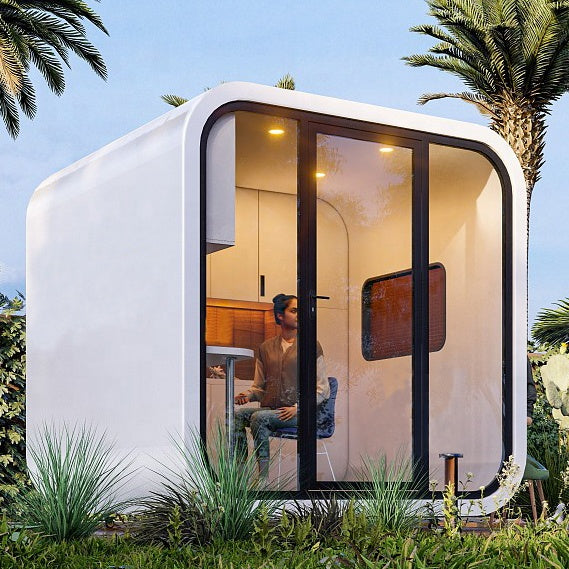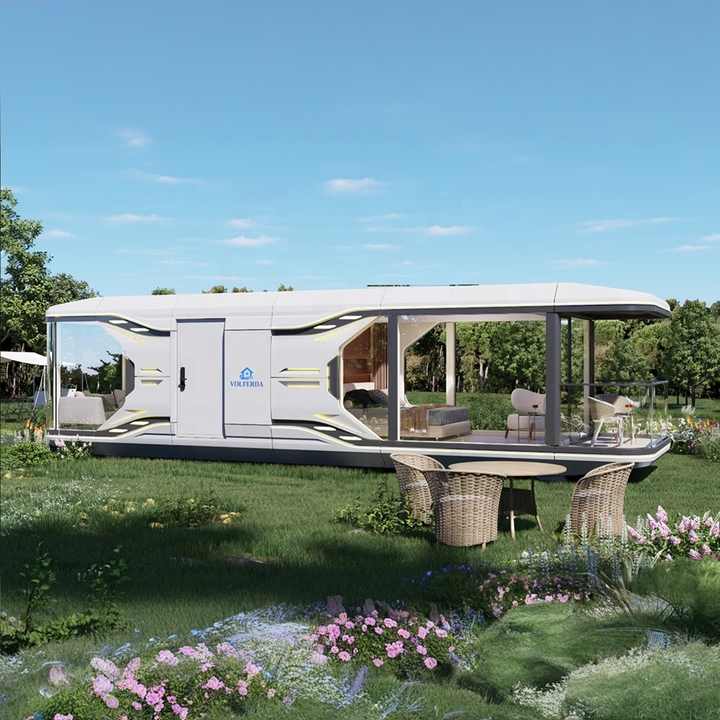Why Modular Houses Are the Future of Sustainable Living
Modular homes are significantly identified as an essential service for lasting living, supplying a blend of effectiveness, cost-effectiveness, and ecological advantages. Their building in regulated atmospheres substantially decreases waste and improves precision, while the possibility for including innovative energy-efficient systems positions them as a forward-thinking option in housing. In addition, the adaptability of modular designs permits the combination of sustainable modern technologies and products customized to private demands. As we navigate the challenges of urbanization and ecological sustainability, one should take into consideration exactly how these homes could redefine our technique to living rooms.
Environmental Advantages of Modular Homes
The environmental benefits of modular homes stand for a substantial step toward sustainable living. These homes are created in controlled manufacturing facility setups, which dramatically reduces waste produced throughout the building procedure. By maximizing materials and lessening excess, modular building and construction adds to a much more efficient use sources contrasted to standard building methods.
In addition, modular homes are commonly made with power performance in mind. Many integrate innovative insulation techniques, energy-efficient windows, and lasting materials, contributing to lower power usage. This can lead to lowered greenhouse gas emissions over the lifespan of the home, boosting its general environmental account.
The capacity to transport and set up modular elements on-site likewise lowers the carbon footprint associated with construction logistics. In addition, several modular homes are constructed to be adaptable and conveniently upgradeable, enabling house owners to apply lasting modern technologies, such as solar panels and energy-efficient furnace, over time.
Inevitably, the environmental benefits of modular homes not only advertise sustainable living but likewise encourage a more responsible technique to housing advancement, straightening with worldwide efforts to deal with environment adjustment and preserve all-natural sources for future generations.
Cost-Effectiveness and Affordability
Structure a home often represents among the largest economic investments individuals make in their life time, and modular homes offer an engaging remedy for those looking for cost-effectiveness and cost. One of the main advantages of modular homes is their reduced construction prices compared to traditional site-built homes. The streamlined production process permits substantial financial savings on labor and materials, which translates to lower rates for consumers.
In addition, modular homes generally have much shorter building and construction timelines. This not only decreases expenditures associated with funding and insurance however likewise mitigates the threats linked with rising cost of living and changing market conditions. Numerous buyers find that modular homes can be personalized to fit their spending plans without compromising top quality or layout.
Furthermore, energy efficiency is commonly developed right into the layout of modular homes, causing minimized energy expenses with time. Numerous suppliers focus on sustainable materials and practices, additionally improving the long-term monetary viability of these homes. In general, the combination of preliminary expense savings, rapid construction, and ongoing power performance makes modular homes an attractive alternative for those looking to buy lasting living without damaging the financial institution.
Performance in Construction
Modular homes not just offer economic benefits but also succeed in building efficiency. The modular structure procedure includes the synchronised building of components in a factory setting while website prep work takes place simultaneously. This identical method substantially decreases the general more information timeline from fertilization to conclusion, often cutting construction time by as much as half compared to standard techniques.
In addition, factory-controlled settings enhance quality control. By making use of precision manufacturing techniques, modular homes are developed to precise specifications, decreasing waste and mistakes. This consistency not just causes a greater quality product but additionally adds to sustainable practices by reducing material waste throughout building.
Additionally, making use of modern-day technology and automation in the production procedure enables for quicker setting up and minimized labor costs. When the modules are transported to the website, they can be efficiently put together, even more quickening the timeline. This structured procedure is not just beneficial for builders however likewise decreases disruptions to the surrounding environment during construction.
Customization and Layout Flexibility
An outstanding range of personalization choices differentiates modular homes, permitting property owners to tailor their space to satisfy certain needs and preferences. This style adaptability is a characteristic of modular building, enabling clients to select every little thing from flooring plans and space designs to finishes and fixtures. Unlike typical homes, modular designs assist in a joint strategy where contractors and engineers work very closely with property owners, making sure that each facet lines up with private way of livings and aesthetic needs.
Moreover, modular homes can be quickly reconfigured or expanded, fitting changing family members dynamics or progressing individual preferences. This flexibility not just enhances the home's functionality but also adds to lasting sustainability, as property owners can customize their areas as opposed to look for new housing options.

Future Fads in Lasting Housing
Arising fads in sustainable real estate are improving the landscape of residential building, stressing ingenious modern technologies and environmentally friendly practices. One significant fad is the assimilation of clever home innovation, which improves energy efficiency with automated systems that monitor and enhance power usage. This not only reduces energy prices yet likewise adds to a reduced carbon footprint.
Furthermore, using lasting materials is becoming progressively typical. Builders are selecting reused, in your area sourced, or rapidly sustainable products, look what i found which decrease ecological influence and support neighborhood economic situations. Modular homes are getting appeal for their lowered waste throughout building and construction and their flexibility to numerous terrains and climates.
An additional pattern is the consolidation of green roofs and living wall surfaces, which boost air high quality and give all-natural insulation. These attributes additionally advertise biodiversity in city areas.
Final Thought
In verdict, modular homes emerge as an essential option for sustainable living, offering significant ecological benefits with lowered waste and power efficiency. Their cost-effectiveness and affordability address the expanding real estate demands in urban areas, while reliable building and construction procedures improve overall performance. The integral modification and style versatility cater to varied preferences and needs. As fads in lasting housing evolve, modular homes are positioned to play a vital function in promoting eco-friendly living methods for future generations.
Building a home usually represents one of the biggest financial investments people make in their lifetime, and modular homes use a compelling remedy for those seeking cost-effectiveness and cost. One of the primary advantages of modular homes is their reduced construction prices compared to standard site-built homes. Overall, the combination of first cost savings, fast construction, and ongoing power efficiency makes modular homes an eye-catching option for those looking to invest in lasting living without damaging the bank.
Ultimately, the personalization and layout flexibility offered by modular homes make sure that they are not simply frameworks, but customized refuges that reflect the distinct identities of their owners while advertising sustainable living practices.

Comments on “How Capsule Homes Australia Offer Innovative Solutions for Affordable Housing”